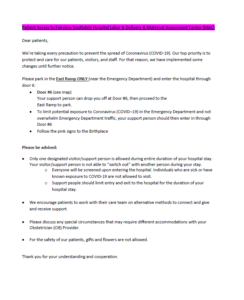Preventative Health
Preventative Care Includes
- Annual Exams
- Immunizations
- Screening lab tests and other services intended to prevent illness or detect problems before you may notice any symptoms.
Annual Exams
When Should Women Start Having Annual Exams?
Women should start having pap smears at 21-years old, but any young woman can come in to see a gynecologist if they have questions regarding their period, birth control or screening for sexually transmitted infections. It is important that all women regardless of age have annual preventive visits with their primary care physician. OB/GYN is often the primary care physician for healthy female patients after their pediatrician.
What Happens During an Annual Exam?
During an annual exam, the provider will discuss any changes that may have occurred in your life during the past year since they have last seen you. This may include changes to your past medical history, surgical history, and past family history. They will discuss any screening tests or exams that are recommended for you based on your age and risk factors. They will perform a full physical exam, which includes a breast exam and pelvic exam, and they will order tests as indicated. This is considered to be a preventative visit, so if you have significant concerns or questions, in order to have enough time to fully address them, a separate visit may be needed.
How Should a Patient Prepare for their Annual Exam?
Please bring a list, or know all of your medications. Make sure to be up to date on any changes in your family history.
What are the Various Health Screenings Offered to Women?
- Pap smear – cervical cancer screening
- Screening for sexually transmitted infections
- Blood pressure screening
- Screening for obesity
- Cholesterol screening
- Diabetes screening
- Depression screening
- Cancer screening
- Thyroid screening
- Breast cancer screening


